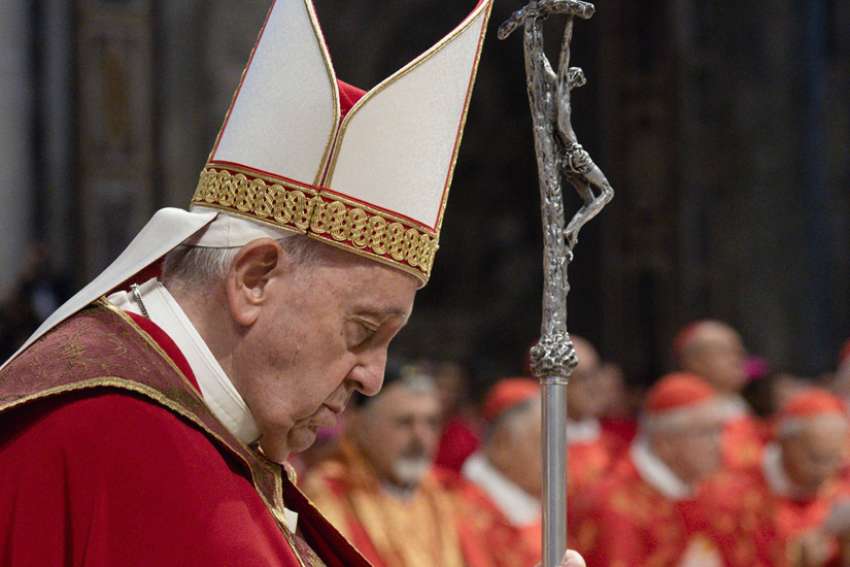Pope Francis’ July 24-29 visit to Indigenous people in Canada will be the most public step yet in the Catholic Church’s escalating efforts to grow in reconciliation with the First Peoples of our vast country. Not only the most public, but also the most involving. Tens of thousands of Catholics will participate in the papal Masses in Edmonton and near Quebec City. Millions more may watch on TV.
In doing so, we will be drawn into the web of reconciliation that the Church and Indigenous people have been weaving since at least the 1970s. In that era the Canadian bishops raised critical questions about how a proposed Mackenzie Valley pipeline would affect the culture and lives of the people of the North.
The bishops drew considerable flak for daring to question the axiom of the developed world that traditional cultures are less important than the march of economic progress. Although Pope Francis was likely unaware of the pipeline controversy, he took the same stance when in 2015 he visited Santa Cruz, Bolivia — the home of that country’s economic elites — and declared, “The economy should not be a mechanism for accumulating goods, but rather the proper administration of our common home.”
The growing cooperation between the Canadian Church and Indigenous peoples was disrupted when residential school survivors began speaking publicly about the abuse they suffered in those Church-run schools. Catholics with eyes to see recognized that our Church had been an integral part of a system of colonialism and oppression.
Even with those revelations, that recognition is still not universal among Canadian Catholics. Our Church has been slower to respond to the calls to repentance and reconciliation than the Anglican and Protestant churches.
This papal visit stands as a kairos moment, a time of opportunity to move in a new direction — in relations between the Church and Indigenous people as well as a new direction for the Church herself. Since the Oblates of Mary Immaculates’ apology at Lac Ste. Anne, Alta., in 1991, numerous religious orders and dioceses have apologized for serving as pillars in structures which oppressed First Nations, Metis and Inuit people.
Some suggest we have apologized enough. But that assertion betrays an ignorance that a sin against God and humans is an infinite offence only forgivable through an act of Divine mercy. It also ignores that the effects of sin ripple down through the generations. We can never be freed from the role of oppressor until all the oppressed are set free.
That calls us to be a different sort of Church, a Church which liberates. Instead of being a Church which preaches morality, we must become a Church striving to make a common home for all Canadians, especially the First Peoples.
Today this is palpably not the case. How can Canada be the common home for all if Indigenous people are the most frequent victims of violence, a violence which police too often ignore? How can it be our common home if the First Peoples of our land live in poverty and despair and have exponentially higher rates of suicide and incarceration?
The Church is a centre of worship of the living God. The Old Testament prophets repeatedly said such worship is worthless unless it is accompanied by action to end oppression. Our action must be to free our society of the scourge of racism and to make human equality a reality.
When Pope Francis spoke to the delegation of Indigenous people and Canadian bishops on April 1, he drew attention not only to the suffering of the Indigenous but also to the gifts they offer society. He spoke of their view of the land as a gift of God rather than a resource to be exploited. He spoke of the emphasis on community, of an understanding of the person not as an isolated being but as part of a web of relationships.
The papal visit will not be the culmination of the journey but an important step in nurturing a new relationship. It will be a time of hope, a hope we are all challenged to make real.
(Argan is a writer in Edmonton.)


